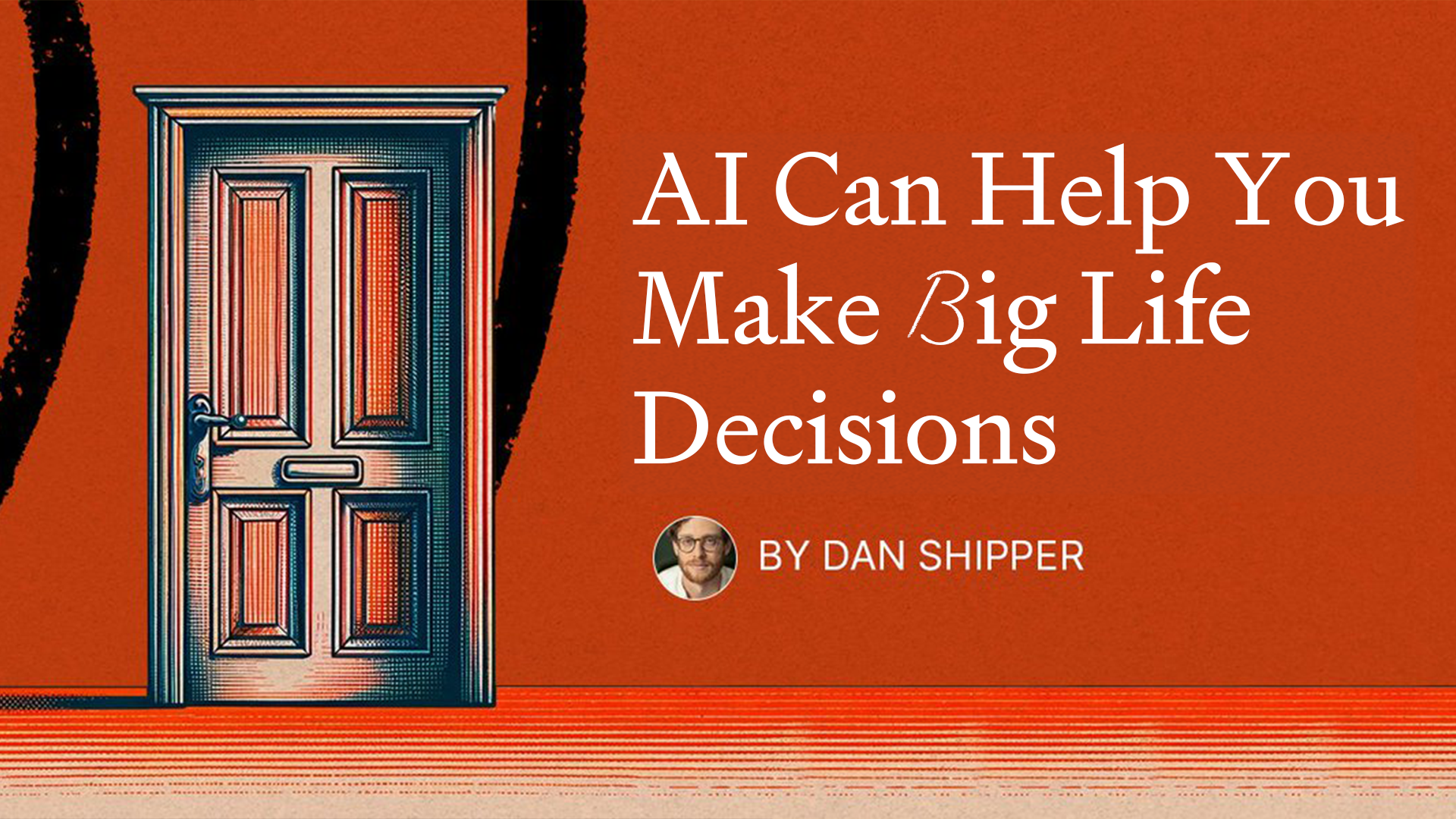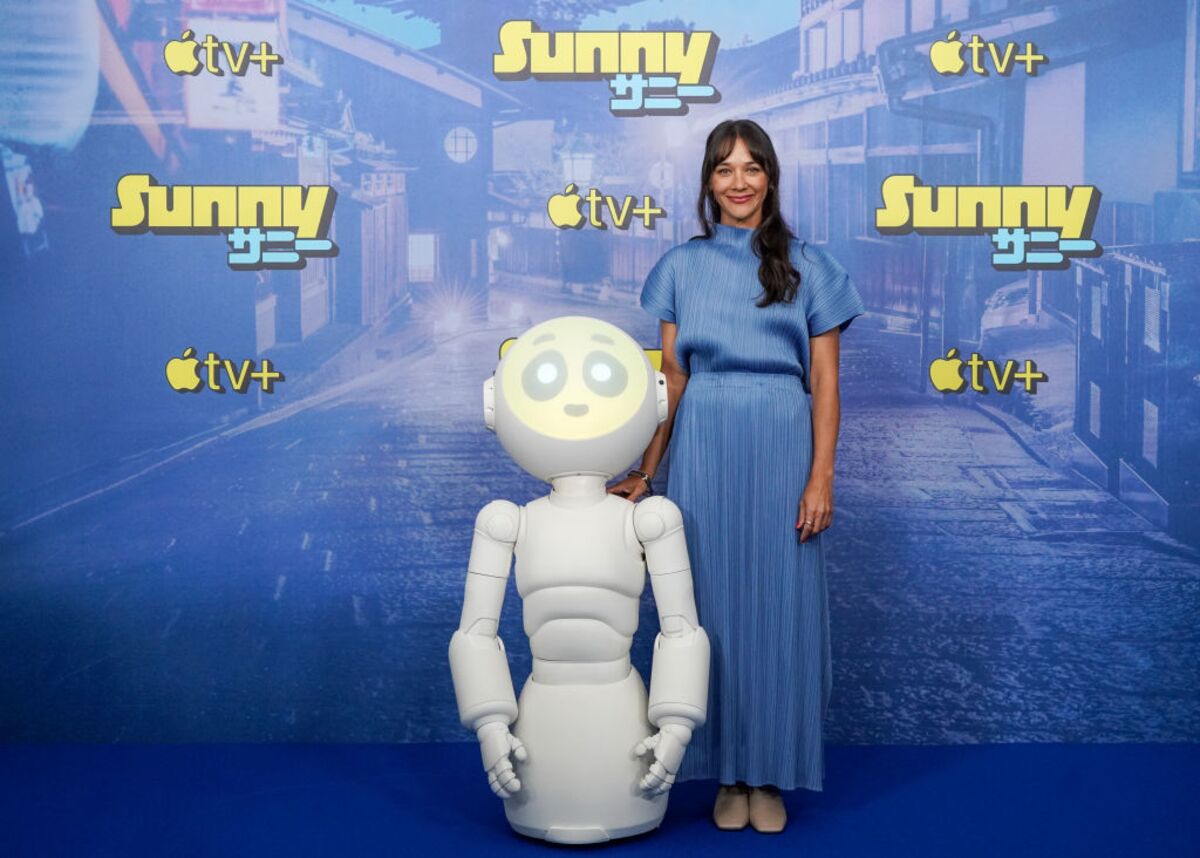Weeknotes 299 - Can we make AI inclusive by default?
Newsletter with thoughts on a societal redesign of AI. The latest news and opinions on all human-AI, immersive, robotics and tech societies.

Hi y’all!
Summer is starting, for at least some days. This is still the Netherlands. However, the holiday season kicked in, and enough news was happening. Especially in AI, as OpenAI is launching a search competitor, and Meta is an OpenAI GPT-4o challenger. More on that in the news section.
Last week, I spent rather some time planning ThingsCon events. We have another Salon in September on Participatory Design for ML and relations between municipalities and citizens. All in partnership with the research program Human Values for Smarter Cities. We have completed the line-up and opened the RSVP. Check it out yourself!
The organizational work for the yearly conference in December is ramping up. We had good success with the confirmations of the first two keynote speakers and made progress in the planning of the exhibitions. Those are the most urgent tasks, next to securing enough funding to make it to the celebration of the 10 years that we would like to create.
I sometimes use the LEX tool for writing, as it is made with that goal in mind. The people from Every are continuously shaping and improving the tool, and the set of checks is working well. It feels like a co-worker who has a fresh look at what you are writing and specific grammar capabilities. It sometimes interferes with Grammarly’s suggestions, which are becoming a bit annoying. It blocks the writing process literally.
The last thing I asked LEX to do was counter-read the new mailing for ThingsCon, and it was both constructive in confirmation and suggestions for some small improvements. It works nicely.
One function that I did not really test is the prompt for expanding, making your own prompts library if you like. I intend to try this in this very newsletter. And as an update after writing the triggered thought below: the review of the first draft definitely helped to make it more concise and focused and kill some darlings. The proposed examples felt too easy for me, felt not matching my style.
Triggered thought
Meta is introducing its latest version of Llama, which is on par with GPT-4o. Should we start using this, as it promises to be open source? That raises the question of what open source means in the realm of generative AI. Applying the models might be open source, but the intelligence depends on the data and learning capabilities, and these are not open. The blog by Interconnects dives deeper into this and discusses where the real guardrails are set in an open-source AI system.
If AI systems become integrated into our day-to-day lives, we want to trust the values the AI has and are in line with our own. Do we trust Apple more than Meta here? What does it mean as the model of Meta is, in principle, to rule by our own values, while Apple intelligence is ‘enforcing’ their design? While the datasets that are used might be feel more trustful by Apple than Meta. What is more dominant for Trustable AI?
An old interview with Aldous Huxley (part of a very nice edition of Zomergasten last Sunday with writer Sana Valiulina) showed how people are victims of their inventions. New inventions need to be used, so we are not only the users but also the ones who use them. Humans always aim to organize and structure the world and the society they live in. That, above all, is what makes us human. The most efficient form, however, can lead to totalitarianism when it is too rigid.
Making a connection to AI and the design of the models. We can create an AI meant to optimize efficiency and structures. That might, however, lead to the ideal tools for totalitarian societies. We can also design AI to counter this natural flow towards efficiency. Use generativity to create outsider views without being extremists.
That is a tough design challenge. The chilling effect tends to play a role here. We adjust our behavior on the fly to what we think it will trigger and respond to, limiting our personal freedom. For example, responding to the turmoil after the Olympic Opening Ceremony on a tableau might offend religious groups because they can read it in the wrong way. As the artistic director mentioned: the intention was not to be subversive but to stress the positive power of diversity and unity, rather the opposite. Something that I felt for sure, was a blast in opposing longer-developing polarization tendencies. In that sense, the push-backs from radical right parties were confirming the message came across.
There is a danger if we will design AI with chilling behavior as a counter to the extreme polarising fueling behavior digital systems have turned out to be in the last decade. We need to design AI systems that keep the right agency with all actors, which is my long-term belief. Preventing alienation and chilling effects are elements to be aware of as signals of losing agency. Can we rethink AI as a positive uniting factor in bringing respectful but open and not afraid to confront? Making AI inclusive by default. That should be the benefit of using AI for search above anything else.
For the subscribers or first-time readers (welcome!), thanks for joining! A short general intro: I am Iskander Smit, educated as an industrial design engineer, and have worked in digital technology all my life, with a particular interest in digital-physical interactions and a focus on human-tech intelligence co-performance. I like to (critically) explore the near future in the context of cities of things. And organising ThingsCon. I call Target_is_New my practice for making sense of unpredictable futures in human-AI partnerships. That is the lens I use to capture interesting news and share a paper every week.
Notions from the news
The big AI news, or at least the most discussed, is the new search-oriented interface of OpenAI. Feels like Perplexity “AI search features that give you fast and timely answers with clear and relevant sources”. But in tech media it is linked to the end of Google, or the Google-like search. Bing is also redesigning its search with less attention on the search results.
/cdn.vox-cdn.com/uploads/chorus_asset/file/25462010/STK155_OPEN_AI_CVirginia_D.jpg)
And as mentioned above, Meta launched a new release of Llama that seems substantial. Mistral is introducing Large 2.
In the meantime is Google DeepMind getting much smarter. Top-level Math smart.
What is the future of OpenAI? How does it survive? I was not able to read this, but I might do so. “Zitron suggests that without unprecedented technological breakthroughs and financial backing, OpenAI may struggle to survive beyond a few years,” ChatGPT summarizes.

Sam Altman is making a case for a democratic vision for artificial intelligence.
Human-AI partnerships
The camera is a sensor and is often used as such. Not to see but to sense and be flexible about what to sense. AI is now added to make it even more flexible. And of course, lots to discuss about.

It is interesting to read this rant by Gary Marcus, who is always critical of the non-critical generative AI hype. He is a bit biased by his own research focus on neurosymbolic.

Referring a bit to this, the value of generative AI is the mirror it can provide, being a co-author that contributes with a critical view and extra references.

Is Sunny a creature with AI or an AI with an interface?

What is the role of hallucinations in the value set of generative AI? I agree with Matt here.; we need to embrace hallucinations. I was also pointed to this lovely project that would be great for the next TH/NGS 2024 on Generative Things.

Robotic performances
This kind of robots, or better maybe: autonomous vehicles, are apparantly now also taking the AI label to create interest. Another startup is also trying to reboot.

An exoskeleton to replace a wheelchair, it is a promise or hope, now demonstrated for real at the olympics.

It still feels strange that this is the most efficient way to create robots in a factory.

Immersive connectedness
For those who cannot wait for the next new iPhone, the first 2025 rumours indicate a move to a glass slab feeling.
/cdn.vox-cdn.com/uploads/chorus_asset/file/22863273/vpavic_210916_4760_0240.jpg)
A potentially new Nest on the roll. Will it become intelligent and generative?
/cdn.vox-cdn.com/uploads/chorus_asset/file/25544586/GTRve1PW0AAMGh6.jpeg)
We need a Kenner. Both a tool that runs your digital life locally, as a companion “that assist you in educating yourself and others in living together on a small planet yourself”
Tech societies
The societal impact of AI should be part of a new tech culture that takes social responsibility.

The state of AI investments - what is the state of the AI Bubble?
The news that another AI tool is using legacy content from other platforms to train its intelligence does not seem very interesting. However, it is still news. It is good that you can switch it off if you like.
/cdn.vox-cdn.com/uploads/chorus_asset/file/25545828/1703205214.jpg)
The web as we knew it is changing, we are in a process of change with new intermediairs and new business models in the making. Advertising is not delivering the necessary and guaranteed values. Behavioral influencing enhanced with pattern knowledge, and AI digital twins might be a new framework… So the web as a mediated space is over and will be replaced by transactional space. And how does this relate to Apple Maps for the web?

Europe is investing in a CERN for AI.

Paper for the week
Interested in speculative design? This is not only useful for teachers; Teaching speculative design
Despite the popularity of speculative design and its presence in a variety of domains, there are very few resources that address it as a pedagogical practice. We attempt to fill this gap by presenting the structure, reasoning and outcomes of a graduate course on speculative design we taught during the academic year 2022-3. The article describes class activities and outcomes, discusses the benefits and challenges of teaching speculative design (especially in a design-engineering program), and concludes by identifying the most considerable obstacles awaiting those who want to integrate speculative design into the curriculum.
Bendor, R., Lupetti, M.L. Teaching speculative design. Int J Technol Des Educ (2024). https://doi.org/10.1007/s10798-024-09908-3
Looking forward
A week of writing proposals, conceptualizing co-design methods, planning events in September, October, and December, and meeting with people in Amsterdam, Antwerp, and London (online), among others. And checking some strange series with “Sunny” robots. I think I have to miss this meetup on Service Design and AI (I will not say anything about that image).
Enjoy your week!









